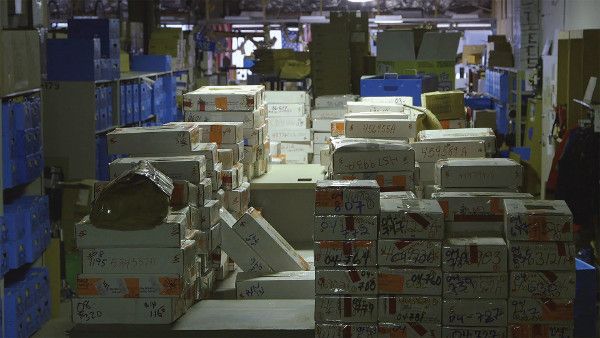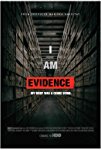Eye For Film >> Movies >> I Am Evidence (2017) Film Review
I Am Evidence
Reviewed by: Jennie Kermode

After a rape, many people just want the whole experience to be over with. It takes a lot of courage to go to a police station or even a rape crisis centre before showering or cleaning up, to allow a recently violated body to be examined by a stranger so that evidence can be collected. Imagine if you were to go through all of that and then discover, years later, that the reason the police had never got back to you about the progress of the investigation was that they'd taken that evidence and left it lying in a room somewhere, unopened, without ever bothering to check the DNA it might contain.
This has happened to hundreds of thousands of women all across the United States.

Now every scandal blows up in an obvious way around a specific, headline-friendly case. This is one of those horror stories that has gradually come to light over the course of years, often being talked about just in regard to specific cities or states, making it hard for members of public to recognise the scale of the problem. Trish Adlesic and Geeta Gandbhir's documentary aims to blow it wide open.
Produced by Mariska Hargitay of Law And Order: Special Victims Unit, the film takes a pragmatic approach to deconstructing a subject that could easily be overwhelming. It begins by laying out the immediate problems that result from the failure to process evidence, something then expanded on over the course of the film. This goes beyond the absence of justice for individual survivors. Leaving numerous serial rapists at large means that further, potentially preventable crimes have occurred, creating more suffering and increasing the burden on the justice system. Meanwhile, innocent men have done time due to cases of mistaken identity, when DNA evidence could have exonerated them.
Looking in more detail at the neglected cases reveals similarities. The complainants are disproportionately poor, black women - those least likely to be able to advocate for themselves successfully within the system. There is also a heavy weighting toward those not considered 'good victims', with grotesque comments on their files indicating that police either didn't believe them or thought they deserved what happened to them. A former sheriff declares (without any supporting evidence) that the vast majority of reported rapes in his jurisdiction were really cases of consensual sex. There is a tendency to take rape seriously only if it has been committed by a stranger, something that applies in only a very small percentage of cases.
The film explores the political issues behind the crisis: shortages of staffing, of funding, a tendency to deprioritise rape in comparison to other crimes. Behind this, largely unspoken, is the deprioritisation of women. We meet those individuals trying to rectify the problem, to work their way through the vast backlog, often desperately under-resourced. Some rape kits have been permanently lost or deliberately destroyed by police, even before the statute of limitations has run out. Others have been processed but the findings have never been run through the system. Once they are, the investigators are forced to triage their casework, to try and get those individuals most likely to attack again, or to kill, off the streets first.
Then there are the stories of the survivors. Several women share their experiences, and though it is years after the fact for all of them, it's clear that there is still a great deal of pain. The distance makes it easier to understand the impact of rape on their lives, different in each case. One has become an advocate for her community. Another has spent years dependent on street drugs. Another, who cradles her baby as she talks with investigators, comes across as strong even as she remembers some of the most distressing moments of her life, but at the moment when she realises she can now actually have her assailant arrested, the look of relief in her eyes speaks to the years of effort this has cost.
A tale of dogged determination in the face of societal neglect, I Am Evidence presents plenty of tragic stories but never creates a sense of despair. Rather, it's full of fighting spirit and the conviction that society can do better. Released at a time when Los Angeles police have been prompted by the #MeToo movement to declare a new focus on historic rape allegations, it couldn't be more timely. As it highlights how little women's safety has been valued, it should be a wake-up call to everyone who asks why more women didn't speak up about their experiences at the time. It is a rallying cry for change.
Reviewed on: 31 Mar 2018















